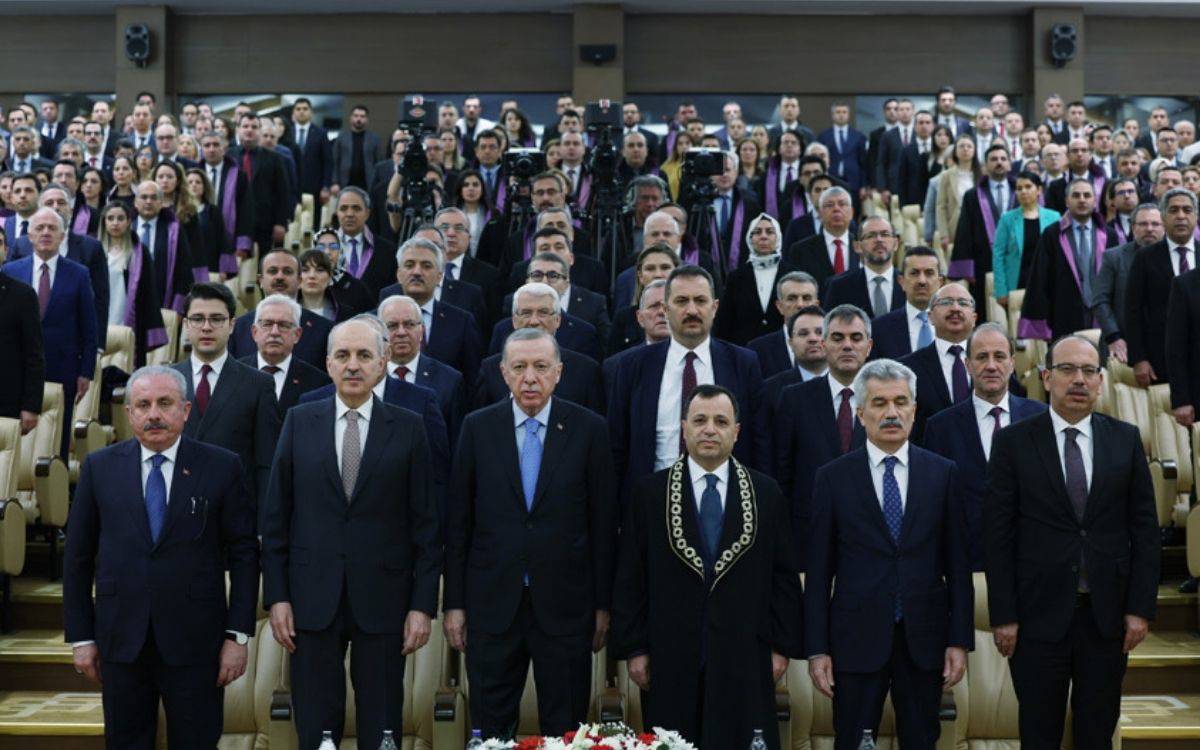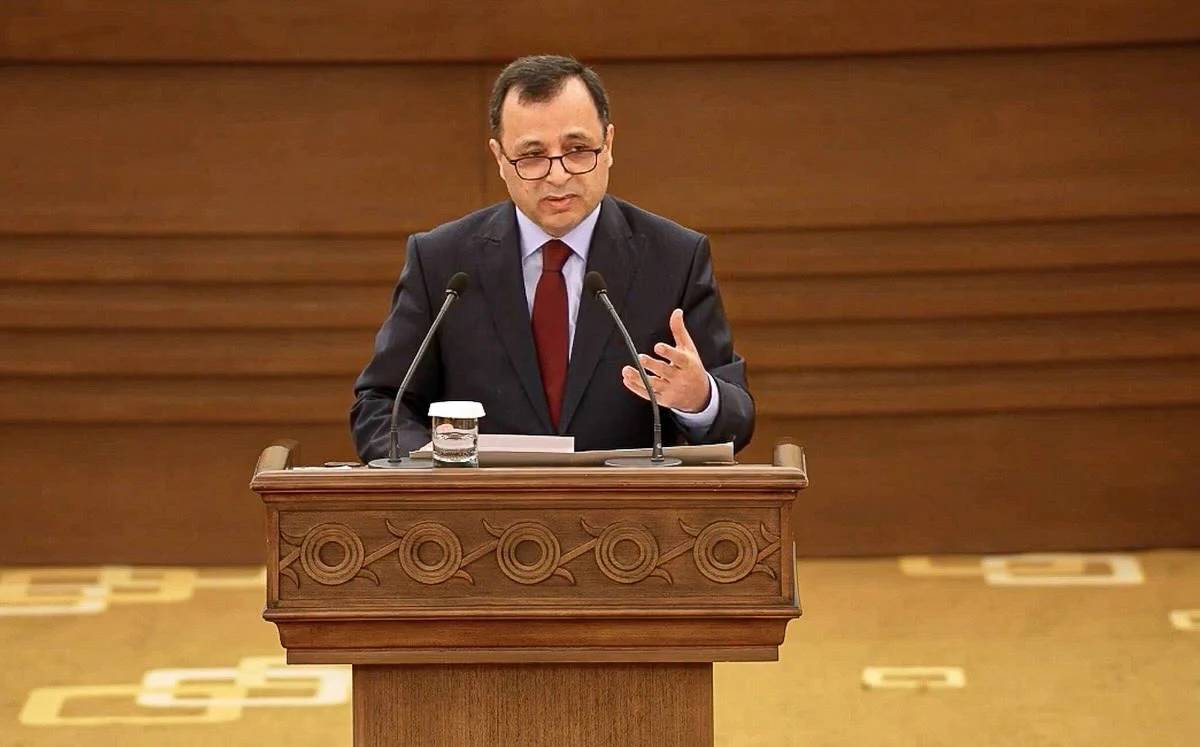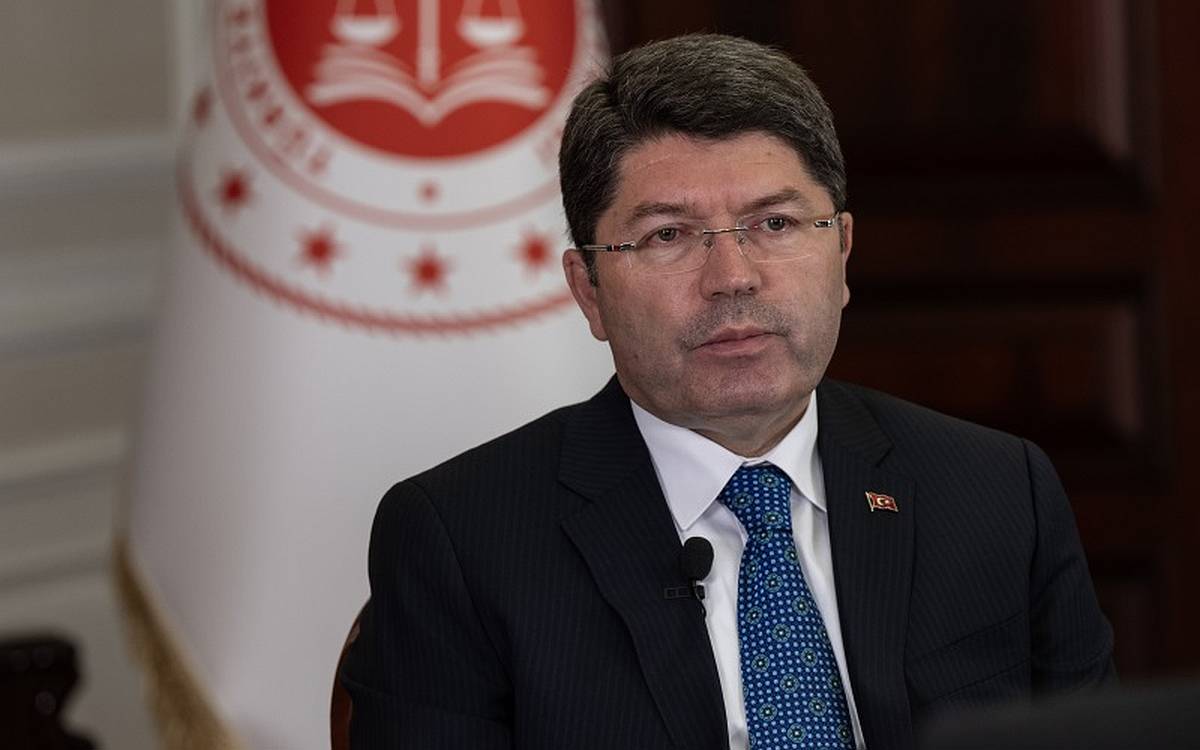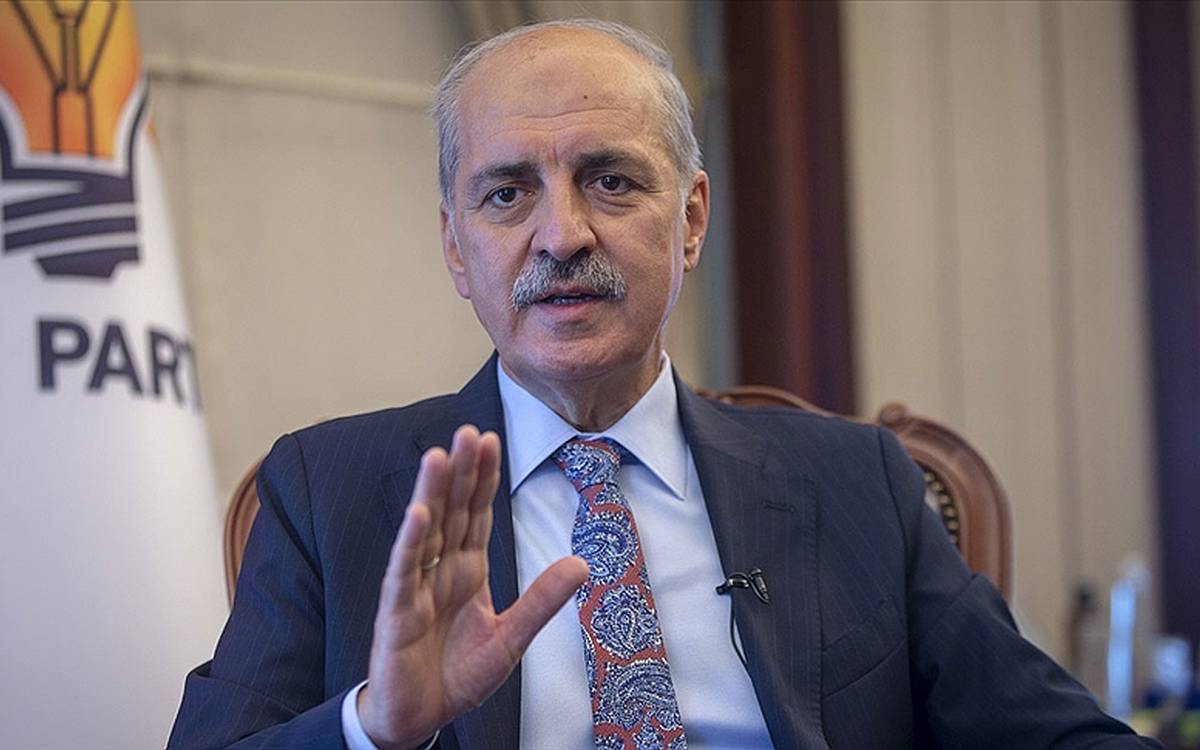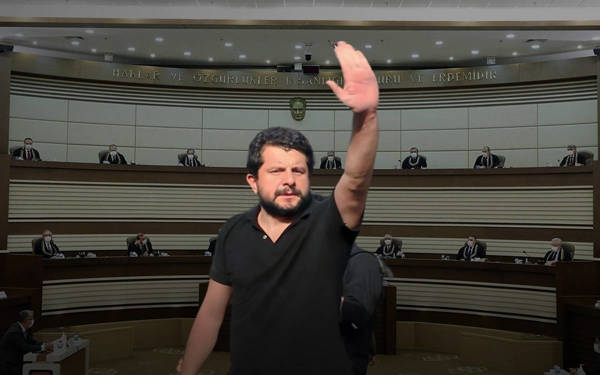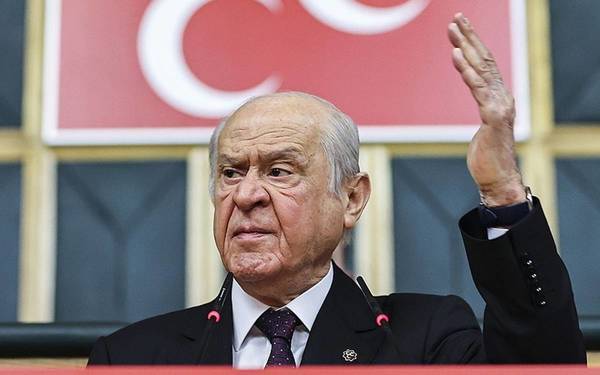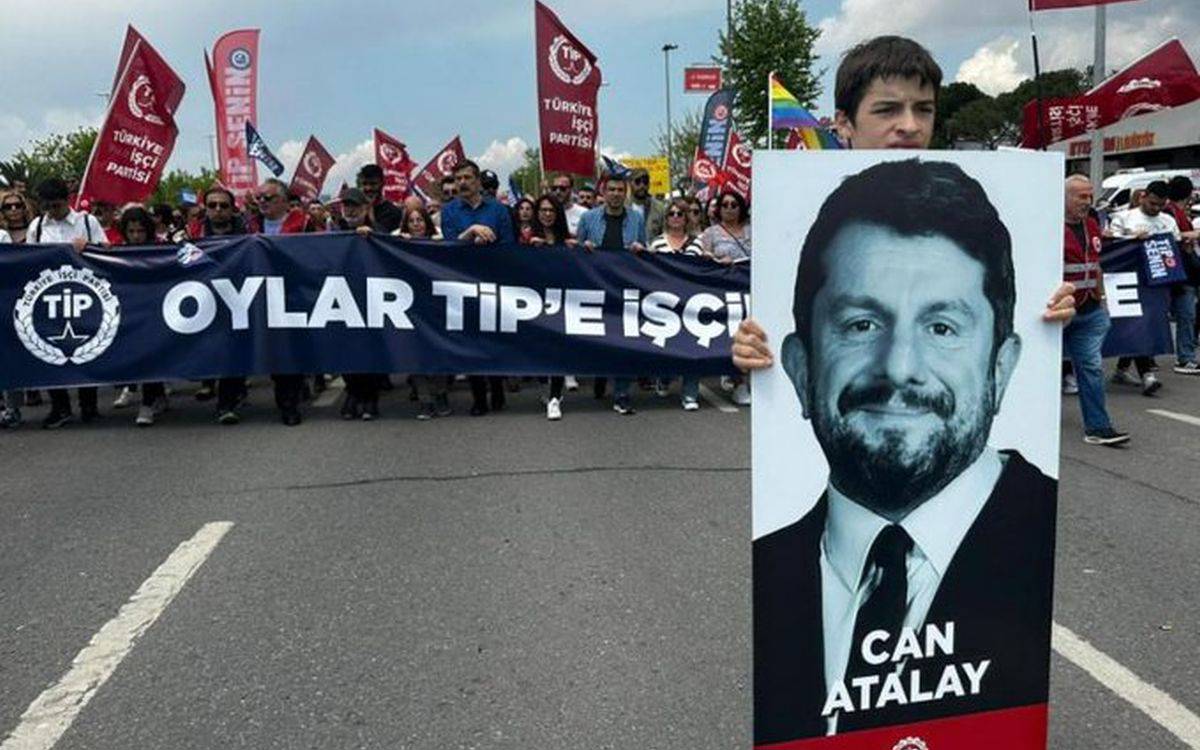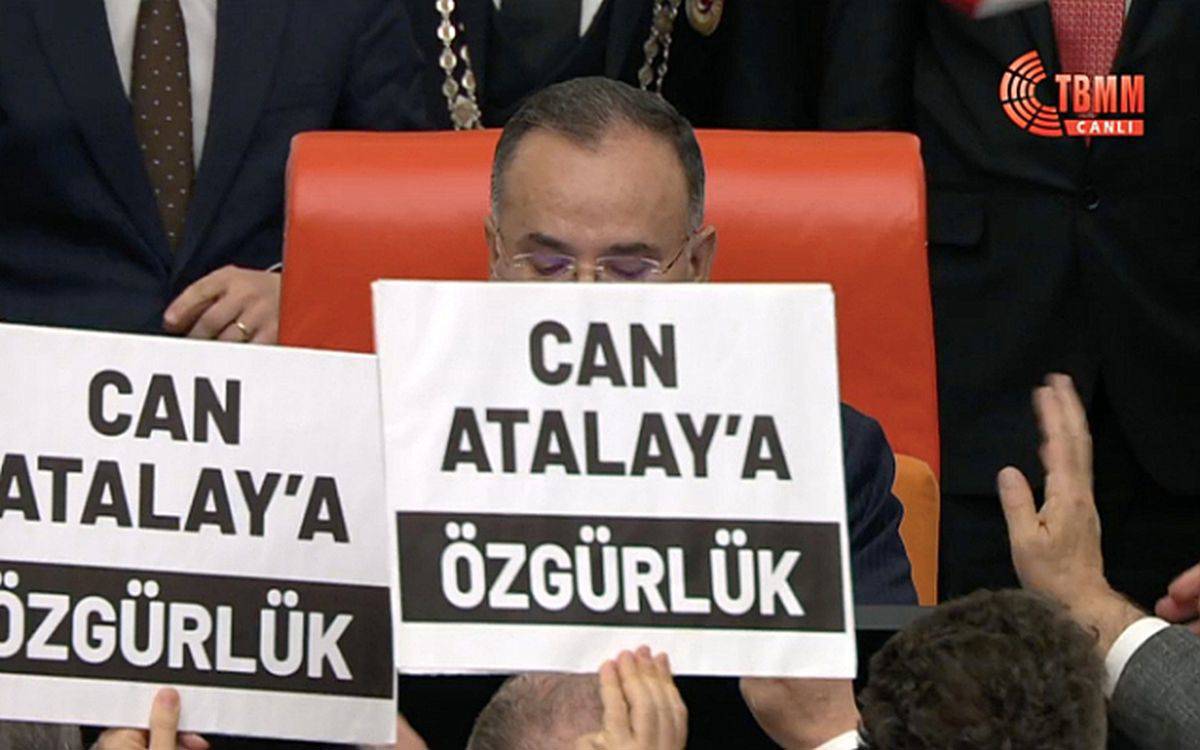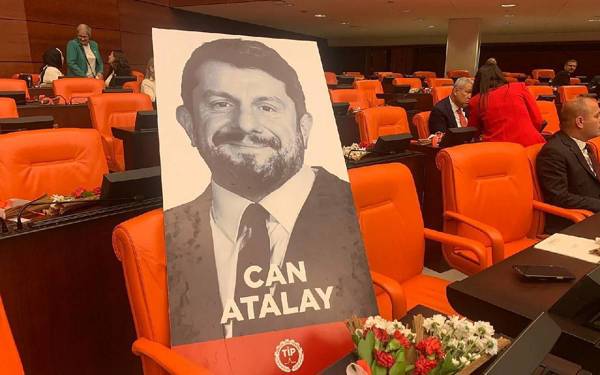Constitutional Court (AYM) President Zühtü Arslan spoke at today's swearing-in ceremony of the new AYM member Yılmaz Akçil (February 8).
Arslan, at the ceremony attended by President Recep Tayyip Erdoğan, Speaker of the Parliament Numan Kurtulmuş, Minister of Justice Yılmaz Tunç, and President of the Court of Cassation Mehmet Akarca, stated, "Compliance with the decisions of the Constitutional Court is a constitutional obligation."
Especially targeted after the violation decisions AYM made regarding the Workers' Party of Turkey (TİP) Hatay Deputy Can Atalay, Arslan addressed Erdoğan.
Arslan stated, "The ultimate authority to interpret the constitution is given to the Constitutional Court."
Referring to individual applications that have been debated in recent times, Arslan continued his speech:
There is no constitutional or legal basis or foundation for not complying with the decisions of the Constitutional Court after judicial decisions that have been finalized through appeal due to differences in opinions and interpretations following the decision and interpretation of the Constitutional Court.
The effectiveness of individual applications depends on the elimination of the violation and the elimination of its consequences. Therefore, in addition to determining the violation, the Constitutional Court must also show how this violation will be remedied and how the consequences of the violation will be eliminated. This is an obligation imposed on the Constitutional Court by the constitution and laws.
Eliminating the consequences of the violation generally requires restoring the situation to the state before the violation. The way to do this is to ensure the elimination of the judicial decision if the violation arises from a judicial decision.
Certainly, we may not like or agree with the decisions and interpretations of the Constitutional Court and decisions regarding constitutional provisions. However, even if we do not agree, compliance with these decisions is a constitutional obligation in a state of law. In fact, according to Article 153 of our Constitution, the decisions of the Constitutional Court are final and bind the legislative, executive, and judicial organs, administrative authorities, as well as real and legal persons.
In essence, even if there were no Article 153 in the Constitution, this result would not change. Because the violation decisions are not only a requirement of Article 153. The implementation of the decisions is also a necessary consequence of the Constitution being a social contract that binds all of us, ensures the legitimacy of the powers we use, and the obligation of loyalty to this contract and the principle of fidelity to the covenant that we use."
What happened in the Can Atalay case?
Can Atalay, who was sentenced to 18 years in prison in the Gezi Park Case and was arrested on April 25, 2022, was elected as a TİP Hatay Deputy in the May 14 Elections.
Despite Atalay being handed his certificate of election after the elections, his request for release was rejected.
Following this, Atalay's lawyers filed a constitutional violation application to the Constitutional Court on July 21, 2023.
While the Constitutional Court was set to consider the application on October 5, 2023, the 3rd Criminal Chamber of the Court of Cassation upheld the prison sentences given in the Gezi Case by the İstanbul 13th Heavy Penal Court on September 28, 2023.
On October 25, 2023, the Constitutional Court concluded Atalay's individual application and ruled that his "right to stand for election and engage in political activities" and "personal liberty and security" rights were violated.
The Supreme Court decided to pay 50 thousand liras in moral compensation, "to conduct a retrial to eliminate the violation, to issue a stay of execution in the trial, and to suspend the execution of the judgment for Atalay, and his release."
In Atalay's decision, 14 out of 15 members of the Constitutional Court attended the session, and 9 voted in favor of the violation.
The President of the Constitutional Court, Zühtü Arslan, Vice Presidents Hasan Tahsin Gökcan and Kadir Özkaya, members Engin Yıldırım, Muhammed Emin Kuz, Rıdvan Güleç, Kenan Yaşar, Selahaddin Menteş, and Yusuf Şevki Hakyemez ruled for a "violation" and ordered Atalay's "immediate release."
Members Muammer Topal, Yıldız Seferinoğlu, Basri Bağcı, İrfan Fidan, and Muhterem İnce agreed with the ruling of the Court of Cassation, stating that there was no "violation." Recai Akyel did not attend the session.
The decision of the Constitutional Court reached the 13th Heavy Penal Court on the same day. However, the court did not convene due to the absence of a reasoned decision. The reasoned decision of the Constitutional Court was published in the Official Gazette on October 27, 2023.
The 13th Heavy Penal Court did not implement the decision, even after the reasoned decision of the Constitutional Court was announced, and on October 30, 2023, stated that "the decision should be given by the 3rd Criminal Chamber of the Court of Cassation," passing the ball to the Chamber.
Only the president of the court, Mesut Özdemir, signed the letter, claiming that the violation stemmed from the decision of the 3rd Criminal Chamber of the Court of Cassation, and that the same chamber should make the decision.
On November 1, 2023, the President of the 3rd Criminal Chamber of the Court of Cassation, Muhsin Şentürk, sent a letter to the 13th Heavy Penal Court, stating that the İstanbul 13th Heavy Penal Court did not make a decision, that the letter sent to them was a "memorandum," and requested a decision to be made regarding the submission of the file.
Then, the President of the İstanbul 13th Heavy Penal Court, Mesut Özdemir, along with associate judges Ferhat Akdoğan and Nihal Kara, convened on the same day and unanimously decided to send the file to the Court of Cassation and sent a letter titled "Additional Decision" to the Court of Cassation.
On November 7, 2023, the Public Prosecutor's Office of the Court of Cassation issued an opinion stating that Atalay, who was tried under Article 312 of the Turkish Penal Code (attempting to abolish the government of the Republic of Turkey or prevent it from fulfilling its duties), would not benefit from parliamentary immunity envisaged in Article 83 of the Constitution, as a deputy who committed a crime under this article before the election.
In the six-page opinion, the Public Prosecutor's Office stated that the authority to implement the Constitutional Court's "immediate release" decision was at the discretion of the 3rd Criminal Chamber of the Court of Cassation.
On November 8, 2023, the 3rd Criminal Chamber of the Court of Cassation made a decision. In the decision bearing the signatures of Muhsin Şentürk, President of the 3rd Criminal Chamber of the Court of Cassation, and associate judges Hakan Yüksel, Mustafa Doğru, Şerafettin Saka, and Mustafa Karayıldız, it was stated that with the confirmation of Atalay's sentence, the judgment became final, and it was emphasized that the decision of the Constitutional Court regarding the "violation" should not be followed.
The Chamber stated that the Constitutional Court did not have the authority to examine this matter, and it was stated that an order should be sent to the Presidency of the Parliament to initiate the procedures for the removal of Atalay's parliamentary membership.
Additionally, the 3rd Criminal Chamber of the Court of Cassation filed a criminal complaint to the Office of the Chief Public Prosecutor of the Court of Cassation against the Constitutional Court members who voted positively in the previous Can Atalay application, on the grounds that they violated the Constitution.
Following this decision by the Court of Cassation, Atalay's lawyers made a second application to the Constitutional Court on February 2, 2024.
In the application, reference was made to the decision of the Court of Cassation read in the parliament, and it was stated that "deputyship could not be revoked" with the reading ofthe "non-compliance with the decision of the Constitutional Court" letter signed by the President of the 3rd Criminal Chamber of the Court of Cassation in the parliament.
In the application, it was requested to determine and annul the decision of "revoking the membership" in accordance with Article 85 of the Constitution.
(RT/PE)





